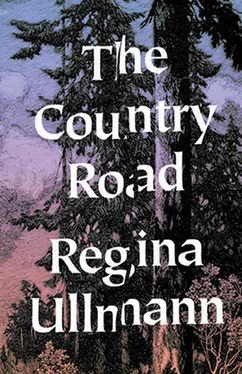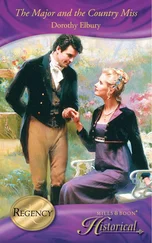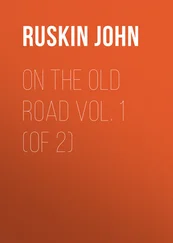Regina Ullman - The Country Road
Здесь есть возможность читать онлайн «Regina Ullman - The Country Road» весь текст электронной книги совершенно бесплатно (целиком полную версию без сокращений). В некоторых случаях можно слушать аудио, скачать через торрент в формате fb2 и присутствует краткое содержание. Год выпуска: 2015, Издательство: New Directions, Жанр: Классическая проза, на английском языке. Описание произведения, (предисловие) а так же отзывы посетителей доступны на портале библиотеки ЛибКат.
- Название:The Country Road
- Автор:
- Издательство:New Directions
- Жанр:
- Год:2015
- ISBN:нет данных
- Рейтинг книги:5 / 5. Голосов: 1
-
Избранное:Добавить в избранное
- Отзывы:
-
Ваша оценка:
- 100
- 1
- 2
- 3
- 4
- 5
The Country Road: краткое содержание, описание и аннотация
Предлагаем к чтению аннотацию, описание, краткое содержание или предисловие (зависит от того, что написал сам автор книги «The Country Road»). Если вы не нашли необходимую информацию о книге — напишите в комментариях, мы постараемся отыскать её.
, largely set in the Swiss countryside, the archaic and the modern collide, and "sometimes the whole world appears to be painted on porcelain, right down to the dangerous cracks." this delicate but fragile beauty, with its ominous undertones, gives Ullmann her unique voice.
The Country Road — читать онлайн бесплатно полную книгу (весь текст) целиком
Ниже представлен текст книги, разбитый по страницам. Система сохранения места последней прочитанной страницы, позволяет с удобством читать онлайн бесплатно книгу «The Country Road», без необходимости каждый раз заново искать на чём Вы остановились. Поставьте закладку, и сможете в любой момент перейти на страницу, на которой закончили чтение.
Интервал:
Закладка:
I wanted to forget everything, and I sat with my toys as I had before, by the wall of the house that faced the garden.
Then our maid came to me with tears in her eyes and said: “Susi is dead.” Now I knew, and I went out to the street to wait for my mother.
She was in the middle of a cheerful conversation with a lady, but I interrupted her and said: “Mother, Susi is dead.”
Her shock was enough for me. She rushed home, and the lady thoughtfully turned away. She looked up to the closed shutters.
But my pain was not yet allayed.
The brothers and sisters were standing at the other gate. I told them, too. They threw their school books on the ground and rushed into the house. And my sister Helene came. “Hey, I’ve told all the children. Susi is dead.” She turned pale, and then said in a comforting tone, “We don’t say dead, we say she passed away.”
Then she walked through the streets with me, talking about other things. She was like me, her soul in disarray.
They were all strangers to me now, the people in the house. I stood at the window in the stairwell, watching the mourners come and go, and the wreaths. And the sympathy cards that fell into the box; all these things that felt so far from my heart.
Her mother came out, large and dressed in black, and asked me in tears: “Do you want to see Susi again?”
She was lying in the coffin. I knew that. I trembled and ran down to the garden.
My doll was lying by the wall of the house. Susi had always been so cheerful. I thought of her.
Then a line of schoolgirls, dressed in black, came around the corner. Following a wagon.
“Susanna is in heaven now.
“But Helene will be gone until evening, too, the cemetery is so far. The bells are ringing.”
The Girl
A stroll through unknown territories, past small, unfamiliar properties, is not just a matter of walking, observing, and moving on. Somewhere those small, polished windowpanes, which always have the same lovely, well-tended fuchsias behind them, or the entrance hall of a house with its fresh-cleaned fragrance, or perhaps a white bench in front of the house, will imprint itself on our lives like a fine, archaic script.
Of course not all of them are like that. Some are in a state of slow decay. But for each person who seems to have fallen asleep on his estate, another is waiting to renovate it and bring it back into shape. As his own property, mind you, but what does that mean, except for that age-old and ever-present truth: that nature has made a pact with the mighty of this earth. These are all binding bills of sale: nature gives its grain, its trees, its furs, in short, it gives everything, everything it has. But man, for his part, cannot simply hold out his hands for a while. He must give his flesh and blood for ownership, indeed, he must give something which, at times, he takes nature herself to be lacking; he must give his own soul.
Yet sometimes nature, too, can be content with a lease. But all too often the tenants are poor, downtrodden people. They work up to deadlines, and appear and disappear again like shadows.
And in the country everyone can tell, even at three paces, if someone is an owner or a tenant. They can tell at least that much, if not much more. But this only makes a poor man doubly poor. For he is poor not only to himself, but to others as well.
All the more so if he is not just poor. If he has fully gone to seed. If he can no longer even offer to perform useful work for others. If poverty has shown itself in him, has made him a beggar to it, so that just as another man puts all his work into assembling a witty carnival costume, this man becomes an ever more consummate image of poverty. And in the end he is a consummate beggar, but the stages that he passes through on the way are very gradual, and barely visible to an observer. But sometimes (for it often happens in the end that hares, half-starved and fleeing for their lives, are pecked to death by birds, and so life reaches a great and seemingly unjust conclusion), sometimes everything takes a different turn, as if the story to be told were nothing but a peaceful idyll, an idyll of poor people, almost like those icons of saints in which the very slightest thing can touch our hearts, can touch our hearts more, in fact, than the most precious gifts of the three kings. But these poor people can hardly make it anymore, at least not on their own. They must be guided back into their own lives, so to speak. They have become too accustomed to sitting before the door of their own heart. And so it is nature’s duty to find someone who will show them to their own beds, who will give them their own bread to eat again, will give them a simple sip of water to show that they can recover their strength. But of course this providence does not amount to mercy as we understand it; since it is all-knowing, and because it follows the paths that are there to be taken, this providence often begins by putting those poor people up for sale, the very people it intends to help, putting them in a position that is simply laughable. For it really is a funny thing when such a good-for-nothing ends up at one of the many out-of-the-way auctions of this world.
“He,” or in this case let’s say “she,” it normally amounts to the same thing, need only stop to rest a bit from walking beside a country road, and already the buyers are passing. “Hm,” thinks a farmer boy, healthy, heartlessly healthy, appraising only with his eyes this ware that could be had at a modest price, marked down, so to speak: “so, she’s missed her chance, too.” And he goes on his way, whistling. Then a young lady with a gentleman, tourists, very curious: people whose house is so well-kept, so rich and impregnable, that they see a pleasing landscape as nothing more than the extension and surroundings of that house, and they react with surprise, as they would in a park, when suddenly they come upon a stranger taking a rest, wondering where he possibly could have come from. What’s more, I would even say that with their curiosity, they unconsciously seek to drive this poor person away. There is something there that cannot be resolved: “What could have happened?” they think; she’s wearing a dress much like our own, though it may be weathered and of a different cut, still from a distance it seems equally proper. “She looks legitimate, yes, she looks like one of our own class. But her child never will be.” And they’re right, they’ve judged it all with a single look. Then along comes a farmer woman, one who rarely speaks. She has her own firm rules. She has grown into the world and become its center, if only at a single spot, for we generally cannot be in several places at once. She would never sit down beside this woman. She has just sold her surplus of flax in the little market town, with its cloister tower and a street of houses peeking out over the wall. Even the richest farmer’s daughter doesn’t need more than fifty pairs of stockings for her dowry, the old farmer’s wife says to herself as she continues on her way, and flax stockings can be rough for someone who hasn’t grown up with them. She looks thoughtful, she seems to have something in the corners of her mouth. Maybe she’s thinking about more than just flax stockings. Then some children come along. They look. They stand there, and, as they consider this riddle, they become a riddle themselves. Time passes. The person there on the bench would start to see herself as a scarecrow of curiosity (but there’s nothing to be done about that) if something didn’t happen soon. Her hat is a white straw hat, an innocent shape, with no decoration to speak of. Two little leaves hang from the metal band, and a single lily of the valley. The skirt is of two colors, brown in the front and moss green in the back, decorated all around with a pattern left by lace that has long since been removed. The sun will have its little fun, just as people do. Then along comes the messenger who serves these mountains. And although he is always on his way somewhere, resting on one leg while moving forward with the other, as he says himself, nevertheless he stops there, still hunched over, but peering out to see whatever can still be seen with his old eyes. The person there is young, and actually she’s almost pretty. She would be truly pretty if fortune had been kinder to her. But “good fortune,” he knows, “is not an accident, it’s a genuine character trait.” This gives him a moment’s pause. But then, after just a short conversation, he makes the right move. He takes her on. “Come along,” he says, “you can feed yourself and your child at my house all right.” (She doesn’t have a child yet, but he could still be right.) “Can you cook?” “Not much.” “Doesn’t matter. Can you sew?” “Not really.” “Doesn’t matter. Can you milk goats?” “Not at all.” “Doesn’t matter either. And you don’t garden?” She shakes her head. “That’s all right too,” he says with understanding or sympathy. “Once you live with me, you’ll learn. When you have a child, you’ll learn. I’ll show you how to do the work, you just haven’t learned yet, mostly, so I’ll tell you what to do.” An old man from the Odyssey couldn’t have had a clearer view of life.
Читать дальшеИнтервал:
Закладка:
Похожие книги на «The Country Road»
Представляем Вашему вниманию похожие книги на «The Country Road» списком для выбора. Мы отобрали схожую по названию и смыслу литературу в надежде предоставить читателям больше вариантов отыскать новые, интересные, ещё непрочитанные произведения.
Обсуждение, отзывы о книге «The Country Road» и просто собственные мнения читателей. Оставьте ваши комментарии, напишите, что Вы думаете о произведении, его смысле или главных героях. Укажите что конкретно понравилось, а что нет, и почему Вы так считаете.












